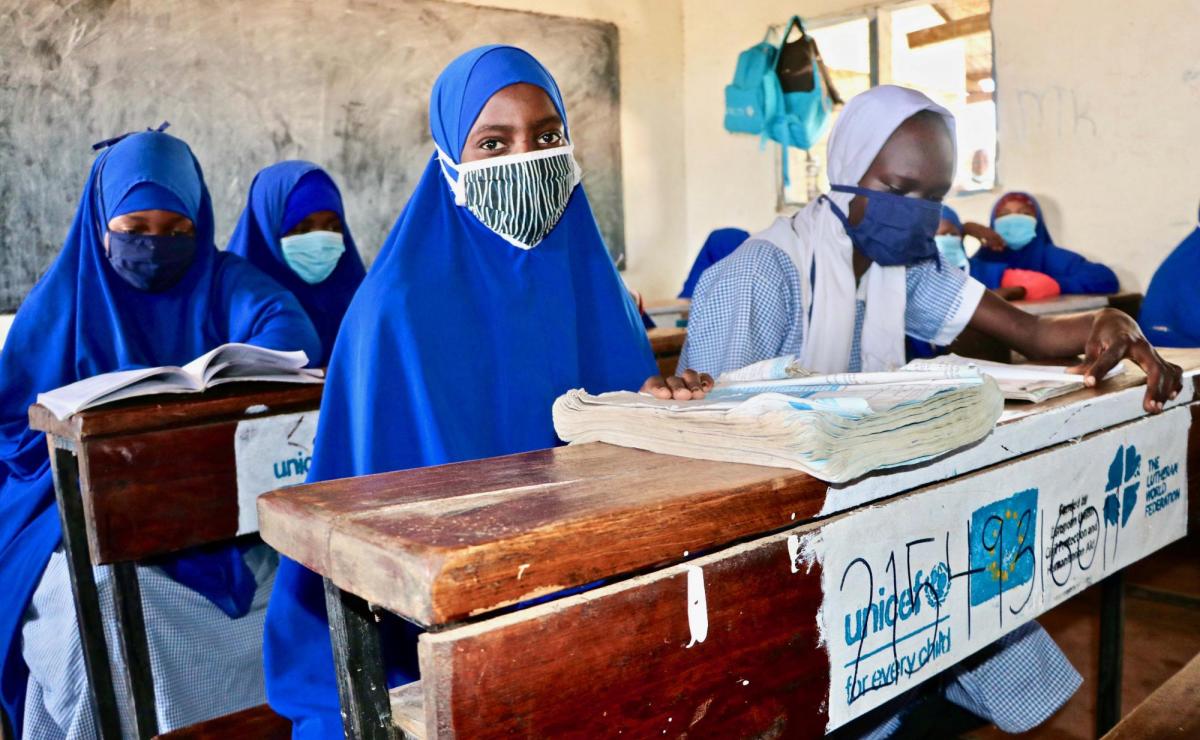ECHO press release

NAIROBI, 13th May 2021: - The European Union Civil Protection and Humanitarian Aid Operations (ECHO) allocated KES 57 million to support the Lutheran World Federation (LWF) through United Nations Children's Fund (UNICEF) towards, “Ensuring access to quality child protection and education for the most at-risk children and adolescents in Dadaab and Kakuma refugee settlement.”
The provision of education to refugee children suffers many setbacks, some associated with the protracted refugee context in Kenya and the continued influx of asylum seekers from neighbouring countries exerting additional pressure on the already over-stretched facilities and resources. Kakuma and Dadaab refugee's camps host 430,920 refugees and asylum seekers. Children in the two refugee camps continue to face many challenges in accessing education, such as overcrowded classrooms, inadequate water, sanitation and hygiene (WASH) facilities, limited teaching and learning materials and inadequately qualified teachers. The question of overage children, at more than 41%, continues to hinder children in the refugee camps from enrolling in school at the correct age.
EU’s funded education and child protection activities supported 117,099 direct beneficiaries in Kakuma and Dadaab. The project ensured that there was an improvement in learner enrolment and retention by conducting community-based campaigns and awareness—the project rehabilitated 41 classrooms to increase learning spaces in schools for enhanced access to education. 9,808 copies of textbooks, including Competency-Based Curriculum textbooks for Grade 4 were supplied to schools and 410 teachers trained to support the uptake of CBC in schools in the refugee camps. 770 new desks were procured and provided to schools.
In addition, the project supported the establishment of a functional school management structure by training Boards of Management in 43 primary schools in both locations. This ensured community involvement and contribution to the education of their children.
“School going children in Kenya refugee camps comprise 56 per cent of the population meaning more efforts and resources need to be directed towards education," said Joseph Mutamba, Technical Advisor for Child Protection and Education for LWF Kenya-Somalia-Djibouti, “With the EU’s support Over 100,000 children benefited from the project that was implemented in 20 months at Kakuma and Dadaab Refugee Camps.”
LWF is UNHCR's lead implementing partner in pre-primary and primary education in Kakuma and Dadaab Refugees Camps. With the continuous humanitarian aid support from UNHCR, UNICEF and EU and other partners, LWF continues to uphold the right of education through the direct provision of essential education services in situations of displacement where governments are unable to provide an adequate education.

